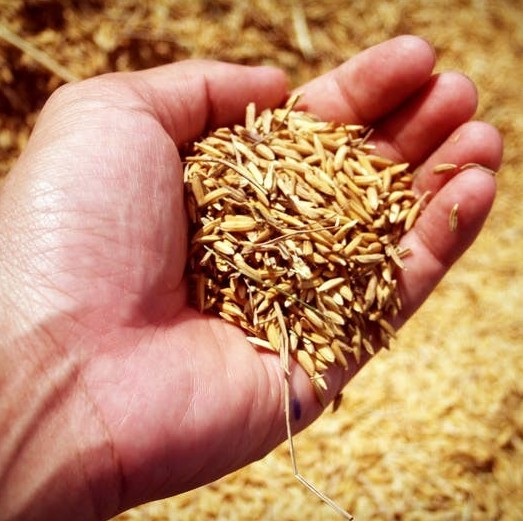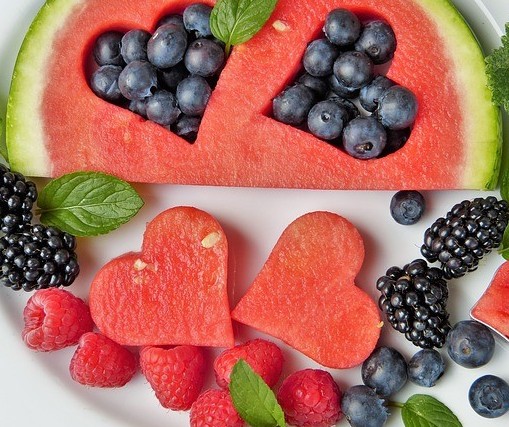Everywhere you turn, you can hear about someone turning to a wheat and gluten free diet. What is so dangerous about wheat? Why are more and more people becoming sensitive to gluten? Should you try a wheat and gluten free diet for your own health?
I have struggled with a relatively harmless autoimmune condition for the last nine years. I have alopecia universalis. My hair follicles have turned off and stopped the production of hair for my whole body. All the body hair has been impacted. While it has been wonderful not to be shaving my legs, wearing a wig is annoying. Having people assume you are dying with cancer is worse in my opinion, so I wear a wig to look normal.
I started testing out dietary regimens when my doctors had to take me off the prescription that was working to regrow hair. Prednisone was also working to make me fat and give me acne. So, I quit taking doctors advice. I quit the crazy cycle of going to them all the time for things they couldn’t really explain. They did have an expensive prescription that would eliminate one symptom and cause another though!
Damaging Effects of Gluten
Wheat and the proteins that are in it are gut irritants. You can imagine that it is like a splinter digging into the lining of the gut. It causes an inflammatory response.
Most people recognize individuals with celiac disease or non-celiac gluten sensitivity. Their inflammation is immediate and profound. However, the inflammation from wheat is problematic even for people who aren’t sensitive to gluten specifically. There is something called Amylase trypsin inhibitors (ATIs) which can provoke an inflammatory immune response in the GI tract by stimulating the immune cells. This happens in everyone, whether they have celiac disease or not. It will cause trouble for you whether your a gluten sensitive or not.
The inflammation that wheat proteins triggers contributes to intestinal permeability. This means that foods that should stay in the digestive tract can be leaked into your bloodstream. Many people refer to this as “leaky gut.” When these molecules get into your blood stream, they wreak havoc with your immune system. You become susceptible to autoimmune conditions.
Neurological illnesses such as epilepsy, depression, and anxiety also are common in those who react to gluten. In addition, a serious autoimmune condition called gluten ataxia affects a few people.
People who have celiac disease or gluten sensitivity often suffer from high levels of peripheral neuropathy. This causes a tingling or “pins and needles” in the fingers and toes. This sensation stems from damage to the nerves in your extremities. Going gluten free may improve peripheral neuropathy.
Another damaging effect of gluten are seizures. Seizures are a symptom of neurons which fire incorrectly. Celiac disease has been associated with a type of epilepsy and bilateral occipital calcifications.
Benefits of a Gluten Free Diet
Eliminating the gluten and gliadin protein from your diet can offer a whole host of benefits as your body starts to heal itself and your health starts to improve. You may notice the following effects as you become gluten free:
- Improved cholesterol levels

- Better digestive health
- Increased energy levels
- An elimination of unhealthy, processed foods from your diet.
- An increase in nutrients from meat, fruits and vegetables.
- Reduction in the risk of heart disease, cancer and diabetes.
- Improves the immune system’s ability to ward off viruses and germs.
- Weight loss. Carbohydrates from wheat containing products often are very addictive and lead to overeating.
- Reduction in symptoms of arthritis and irritable bowel disease.
- Heightened awareness of the impact of food on health.
Getting Started Gluten Free
My first attempt with the gluten free diet was a raw vegan diet. I eliminated wheat and grains. I juiced and ate loads of raw vegetables. Salads were a favorite meal. I do not recommend this diet to anyone. Your body does need some of the vitamins and minerals in animal products.
I was puzzled after six months of being a raw vegan as to why my diet wasn’t working. However, I hadn’t really eliminated gluten. I hadn’t read the label on the salad dressing bottle to see that it contained gluten! Gluten is in almost everything. It is so frustrating. Not only that, but you have to eliminate it for months on end before the damage that has been done by gluten can be repaired.
If you are just getting started going wheat and gluten free, I have some important tips for you.
- Read every label of food that you plan on consuming.
- Cut out breads and pasta.
- Focus on eating meats that you prepare at home.
- Consume some small amounts of fruits and vegetables if you feel the need to eat them.
- Steam vegetables. Do not cook them in vegetable oil.
- Pay attention to spice packets and seasoning blends. This is where gluten can hide!
Don’t Get Tempted to Try It
My biggest pitfall thus far has been to cave in to my temptations when I felt like my efforts were futile. I reasoned that I didn’t have any big major reaction such as a rash or a seizure when I ate the gluten, so I must not be that sensitive to it. Here’s the problem, some of the inflammation that it triggers won’t be noticeable. When it lowers the thyroid production, it is unlikely that you’ll notice it.
I was getting frustrated at not seeing results by eliminating the foods with massive amounts of wheat in them, the breads and pasta. However, I was still consuming small amounts through the salad dressings, so while the inflammation in my body lessened, I hadn’t eliminated the trigger. It was still there.
Tips For Success With a Wheat and Gluten Free Diet
A few weeks ago, I decided I’d delve back into another elimination diet and attempt to heal my alopecia universalis yet again. This time has been much easier. I knew that cravings for wheat and gluten containing products would subside within the first week if I was able to simply stick with it. However, I did a few things to ensure my success.
- Joined Facebook Groups that promoted diets that were gluten free – Zeroing in On Health, Principa Carnivore, Gut and Psychology Syndrome Diet,
- Threw out the foods that would tempt me. I can’t have foods around that tempt me. I’ll just justify eating them up and think that I won’t buy them again. Out of sight, out of mind.
- Told my family this is what I was doing and asked for their support.
- Informed my dates that I would only be eating the steak and avoiding the sauces and sides. (This actually has not been that bad. When I inform them that wheat can trigger seizures and I am prone to seizures, they have been understanding and supportive. I may not ever hear from them again, but so far, so good!)

Hey Melinda! I am a waiter and work in food and beverage for almost 3 years now. Which means a I know a lot about food. It is sad that many people don’t know the importance of a gluten and wheat free diet, as it can be crucial for the immune system, and not only that.
I loved to read your article. Thank you for sharing it with us. My question is: Is it suggested for women through their pregnancies?
-Hekuran
I would think that it would be beneficial to women who are pregnant. I don’t really pay attention to whether or not the doctors are recommending things. They don’t get very much nutritional education in medical school and often are just reiterating things that the government agencies, which are profit driven, put out.
Wow, I’ve always heard gluten free diet things like that but haven’t really take a closer look at it and understand it fully.
I must say I learnt a lot from your sharing here about wheat and gluten free diet. Didn’t know there are so many benefits.
I think it’s time for me to get started following your advice 🙂
That’s great! It can seem overwhelming at first, but you’ll soon discover there are many things that are gluten free that you can eat!
Oh no, I didn’t realize that gluten can be bad for everybody! I assumed that it was a genetic thing. I personally do not have any digestive , inflammatory problems when I eat breads and pasta. But my son seems to have eczema and his stomach breaks out in patches after he eats certain things. I never really thought much of it, but now that I see all the pitfals about eating bread and pasta, I am concerned. I do not want my son having leaky gut! The thing is, he is so picky, he won’t eat vegetables unless they are covered in butter and salt…. he is only 18 months, any advice on toddler food ideas , like finger foods?
Eczema could be related to gluten. You can try him without gluten for a few months. Veggies covered in butter is a great thing, but I do follow the ketogenic diet. Butter isn’t as evil as some people make it out to be.
I’ve always heard about gluten free diets, but I’ve never actually dove to deep into the benefits of them. Your article has really informed me on what gluten can do to the body! I’ll have to avoid gluten for a while and see if I feel any different after not having it.